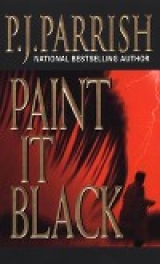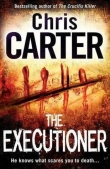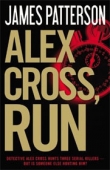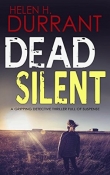
Текст книги "Paint It Black"
Автор книги: P. J. Parrish
Жанры:
Триллеры
,сообщить о нарушении
Текущая страница: 6 (всего у книги 20 страниц)
Chapter Fourteen
Louis walked in the door to the Sereno Key station and paused, looking around for somewhere to put the shrimp. Greg Candy looked up from his desk, spotting the bag in Louis’s hand.
“Those look good. Where’d you get them?” he asked.
“From the shrimp woman at the wharf. Cost me forty-five bucks to find out Quick stopped there after his fishing trip. You guys got a fridge?” Louis asked.
“Yeah.” Candy came forward and took them from Louis.
Louis headed toward the bathroom to wash his hands. He walked into Wainwright’s office, still drying them. He stopped short at the door. Wainwright was seated at his desk and two black men stood in front of him, both in dark suits and ties. The taller of the two was slender and bald, with an earring in his right ear. The other one was built like a wrestler.
Wainwright caught Louis’s eye and waved him in.
“Kincaid, this is Oscar Mills,” Wainwright said, motioning toward the taller one. “And Wallace Seaver. Southwest Florida NAACP. Gentlemen, Louis Kincaid.”
Mills looked back at Wainwright. “And his position is?”
“Consultant.”
Seaver and Mills gave Louis the once-over as he came farther into the room.
Wainwright handed Louis a newspaper, folded to an inside page. Louis scanned it quickly. It was an editorial that took all the local law enforcement agencies to task for their failure to officially acknowledge the two murders as hate crimes.
Louis looked back at Seaver and Mills. “I see their point,” he said. “But right now, we’re not sure what we’re looking at.”
“The chief already made that point,” Mills said. “We disagree.”
Louis glanced at Wainwright.
“We’re doing all we can,” Wainwright said. “We’ve committed as much manpower as we can to the case, and we’ve got a couple of solid leads we’re pursuing.”
It wasn’t true. They didn’t have anything really, and Louis resisted the urge to look at Wainwright again.
“We’re not here to bust your chops, Chief,” Mills said. “We’re here to offer our help.”
“How?” Wainwright asked.
Mills set his briefcase on the desk and withdrew a file. He held it out to Louis, who stepped forward to take it. It was filled with computer sheets, mailing lists, bad copies of white supremacist literature, and photos of white men.
“We’ve compiled this over the last few years,” Mills said. “We like to know who’s hiding under the proverbial rocks, if you get my meaning. There are a hundred and five names there, all confirmed to be members of various white power organizations or convicted of race-related crimes.”
Louis looked up from the file, glancing at Wainwright. He looked mildly annoyed.
“Have you shown this file to anyone else?” Louis asked Mills.
“No. We hoped you would act on it first. We don’t want to have to release these men’s names to the media. But we will if we have to.”
Louis stared at Mills. “They’re not suspects yet, Mr. Mills,” he said. “At least not in these murders.”
“We just want you to do your job.”
Louis glanced at Wainwright. It was obvious Wainwright was going to let him take the lead on this.
“We’ll check into all of them. You have our word,” Louis said.
Mills nodded and snapped his briefcase shut. He extended his hand. Wainwright rose and shook both men’s hands. They left.
Louis waited for Wainwright to say something. Wainwright moved to the watercooler.
“Do our jobs,” he muttered.
“They’re just doing theirs,” Louis said.
“I know, but I just hate outside interference, especially from people who don’t know a damn thing about police work. Everything’s so damn political with them.”
“Them?”
Wainwright turned. “Outsiders. District attorneys. Civil liberty groups. Activists. Bleeding hearts. Reporters. Mayors. All of them.”
“You getting more pressure?”
Wainwright came back to the desk and slid into his chair. “Mayor Westoff called this morning. Said he’d been hounded by reporters and he’s tired of listening to Hugh Van Slate. Wanted to know if we had any suspects.”
Louis held out the folder. “Tell him we got a hundred and five of them.”
Wainwright smiled weakly. “Right. I guess I should go over there and talk to him, try to calm him down.”
Candy poked his head in the door. “Chief, someone wants to see you.”
“Now who?”
“Matt Van Slate,” Candy said.
Wainwright glanced up at Louis. “Did you see Van Slate today?”
“This morning. Didn’t get anything.”
“Let him in,” Wainwright said to Candy. Wainwright stood up as Van Slate appeared at the door.
Van Slate’s eyes shot to Louis.
“I want to file a complaint against him,” he said, pointing.
“Really?” Wainwright said. “What’d he do?”
“He hassled me. Put me in a choke hold.”
“And I’ll bet you didn’t do anything to provoke it, right, Van Slate?”
Van Slate came toward them. “That’s right. Nothing.”
“Why do I find that hard to believe, Van Slate?”
“I got witnesses that’ll say I never touched him,” Van Slate said. “And I know my rights and I know what you guys can do and can’t do. I want his file to have a complaint in it. I want him suspended or something.”
Wainwright put his hands on his hips. “Well, Matt, my friend, we got a problem then. I can’t discipline him for anything. Kincaid is not a cop. He’s a private citizen. If you got a beef with him, you’ll have to sue him.”
Van Slate glared at Louis. Then he thrust a finger at Louis.
“We’ll meet again.”
“You’re starting to repeat yourself, Van Slate,” Louis said.
Van Slate turned and stalked out.
“He’s a jerk,” Louis said.
“Did he take a swing at you? Draw a weapon?” Wainwright asked.
“No.”
“Did you?”
Louis hesitated. “I used a show of force.”
Wainwright moved to the door, closing it softly. He faced Louis.
“Look, Louis, I know this might be hard, but you have to play it smart right now.”
“What do you mean?”
“It’s like I told you at the hospital after you chased down Levon. You don’t have the protection of a badge anymore. That means little credibility for you when it comes to who’s telling the truth. If he had been smart enough to want to press criminal charges, I would’ve had to take his statement.”
Louis sighed. Neither he, Wainwright, nor the investigation needed shit like this right now.
Louis nodded slowly. “Sorry.”
“No more assaults on suspects,” Wainwright said. “Not in front of witnesses, anyway.”
There was a knock on the door.
“Now what?” Wainwright said in exasperation. “Come in!”
Candy poked his head in. “Chief, there’s someone else here to see you.”
“Jesus, can’t it wait, Candy? I’ve got to—”
“I don’t think so, Chief. It’s Mrs. Quick.”
“Mrs. Quick? Anthony Quick’s wife? Shit,” he said softly. “Show her in, Candy.” Wainwright looked at Louis. “Stick around, okay?”
Louis nodded.
She came slowly into the office, a small woman in a blue dress, carrying a black wool coat over her arm. Her soft brown eyes went from Wainwright to Louis questioningly.
“I . . . I spoke to someone on the phone a couple days ago,” she began. “I’m Anita Quick, Anthony’s wife.”
Wainwright came forward, holding out a chair. “That was me you spoke with, Mrs. Quick, I’m Chief Dan Wainwright. Sit down, please.”
Louis watched her closely. He had seen the look on her face before, back on the force in Ann Arbor. It was a stunned look of calm that took over people when they were trying to hold on to reality while their brains were screaming in disbelief. He had come to think of it as the grief mask.
Anita Quick looked like her mask was about to break. Louis glanced at Wainwright. He looked suddenly wound too tight, and his blue eyes, even as they were focused on the woman before him, signaled that he was somewhere else.
Anita Quick was waiting—for one of them to speak, tell her that there had been a mistake, that the man they had pulled out of the water was not her husband after all. Suddenly, she began to cry, putting one hand over her eyes.
Ah, shit. Louis felt something give in his chest.
“Mrs. Quick . . .” he said.
The crying grew into sobs.
“I’ll get her some water,” Wainwright said. He hurried out, leaving the office door open.
Louis went to the bathroom, grabbed some Kleenex, and came back to sit down in the chair next to Mrs. Quick. He gently pushed the Kleenex into her palm, lying open in her lap. She didn’t seem to notice it. The lap of her blue dress was spotted with tears.
Louis looked up at the door. Damn it, where is Wainwright? His eyes focused on the watercooler by the wall. Why did he leave to get water?
He went to the cooler and drew a cup, taking it to Anita Quick. Her sobs had slackened to weeping punctuated with sharp intakes of breath.
“Mrs. Quick, take this, please.”
She finally accepted the cup. She took a sip and handed it back. “I would have been here sooner,” she whispered, “but I couldn’t find anyone to stay with the boys.”
“You didn’t have to come,” Louis said gently.
“Yes, I did. I have to take Anthony home.” She hesitated. “I can do that now, can’t I?”
“Yes. I’ll make the call.” Louis hesitated. “Will you be all right here for a moment?”
She nodded, wiping her eyes with the Kleenex.
Louis rose and started for the door.
“Officer?”
He turned.
“Did Anthony . . .” Her eyes welled. “Did Anthony suffer?”
“No,” Louis said.
She nodded slightly. “Thank you,” she whispered.
Louis left, pausing outside the door to let out a deep breath. He knew that the Toledo police had been instructed to tell her as little as possible. He knew, too, that few people really wanted to hear the truth, even when they asked. He was thankful that whoever had gone to her home that day to break the news had been kind.
He glanced around the outer office but there was no one there except the dispatcher. Wainwright was gone.
“Myrna, did you see where Dan went?” he asked.
“He left a few minutes ago, but didn’t say where,” she replied. “Maybe to see the mayor?”
More likely he just didn’t want to face Anita Quick, Louis thought grimly. He had known other cops like that, cops who were as cold as ice when confronted with decomposed bodies but who fell apart when they had to talk to a mother whose teenage kid had just been pulled out of a smashed car. Wainwright’s steely exterior was apparently just that—a shell.
Well, so what? Wainwright had enough on his plate with the mayor, Van Slate, and the NAACP. He’d give him a pass on this, and handle Anita Quick himself.
He picked up the phone to call Vince Carissimi. He just hoped they’d get a break soon. He didn’t want to lie to any more widows.
Chapter Fifteen
Shit. Look at him.
Just sitting there. Just waiting for me . . . Ready to die.
A surge of power raced up through his chest. He slid the truck to a quiet stop, his eyes jumping around quickly. A 7-Eleven sign loomed to the left, but back here, behind the store, no one would see. No one ever saw.
He slipped out of the truck, grabbed the stick from the back, and walked up to the man slumped against the bricks. He had seen him on the beach and known he was perfect. He had followed him, down the crowded sidewalks, staying back, waiting, until now.
The bum lifted a soggy head and squinted at him.
“Hey, you got some change, man?” he asked.
He looked down at him. This was too fucking easy. The shit wanted money. He’d offer him something better.
“Got beer,” he said.
The bum smiled as he tried to lift himself up.
He extended a hand and the bum took it, rising. He pulled the bum toward his truck, opened the door, and pushed him inside.
Down the busy street, past the moms and dads and kiddies, moving silently under the flashing neon lights, past the cars. Past the fucking cops. Stupid fucking cops.
The bum started talking.
Shut up . . . Shut the fuck up!
This was all wrong. What the hell were all these people doing out so late? It was busy here. Too busy to stop and kill the bum. He would have to drive farther.
Water . . . he wanted the water. It always helped, having the water there. It quieted the pounding in his head, made things clear enough so he could do it. The water. He needed the water.
Slowing down at the booth . . . the woman inside not even looking at him as he handed over the money. Not like the other causeway, where they were waiting for him now.
Moving on now, slowly. Moving through the dark tunnel of trees, way out to the end.
He opened the window and the ripe night air rushed in. The sting of the salt was in his nostrils, seeping up into his brain.
He killed the ignition. The water . . . faint . . . he could hear it.
It wasn’t hard dragging the bum out. He thought he was going to drink.
Stupid nigger. You’re going to die.
He shoved him and the bum hit the sand with a thud. The bum’s eyes were glazed, not with the booze, but with a confused fear.
He stepped forward, his knife glinting in the moonlight. He dropped to his knees, straddled him, and pushed the knife quickly into the bum’s chest. Then again. And again.
Yeah . . . Yeah.
Fuck! No! No! Shit! Motherfucking piece of shit!
He stopped. Damn it, damn it. Where is it? Where did it go?
Stupid . . . stupid!
The stench of blood drifted to his nostrils.
Find it! Find it!
There was too much blood, too much blood, he couldn’t find it. The murmur of the waves at his feet was drowned out by the pounding in his head.
He looked up at the moon just as it slipped behind the clouds. He pulled the can of paint from his jacket.
Finish it!
Chapter Sixteen
The body lay faceup at the waterline, the skin dusted with sand that glistened in the slanting early morning sun. The waves crept up, gently rocking the body and then recoiling, as if in horror at the gruesome discovery.
There was no face.
The cheekbones and eye sockets had disappeared into the mushy tissue, and what was left was blackened and puddled with foaming water. Only the teeth were left, smashed and distorted against swollen lips. What little skin remained was speckled with black paint.
Louis wet his lips, his stomach queasy. Tatum and Quick had been beaten, but this one . . . this time the face was gone. He steadied himself by taking a few steps away and looking out over the gulf. He concentrated on a lone sailboat, on its shape, a crisp white triangle against the brilliant blue of the sky.
“Damn it, these waves are killing us.”
Louis looked back. Wainwright and another man were standing over the body. Wainwright was the one who had spoken. Louis didn’t know the other man but he recognized the uniform: Lee County Sheriff. He walked back to them. The deputy’s nameplate said G. VARGAS.
“Any evidence left will be crab food,” Wainwright said. “Christ, it’s almost seven. The rubberneckers are going to be out in force soon. Where are your techs, Deputy?”
“They’re on their way, Chief Wainwright.” The deputy hesitated. “I better get things taped off.”
“Good idea,” Wainwright muttered.
Louis heard a car and looked up the beach to the road, but it was just another sheriff’s department unit. He looked back and saw Wainwright watching as the two men, one a suit, the other a uniform, started down to the shoreline. The shorter one in the suit looked like a detective. The other was broader and taller in his dark green uniform, with a windswept tuft of blond hair, sunglasses, and a large square jaw. He was walking with a quick, determined stride and Louis suspected it was Sheriff Mobley.
Louis wondered what Wainwright would do. They had no jurisdiction here and had beaten the sheriff’s department to the scene only because they heard Deputy Vargas’s call come in and had a shorter distance to drive.
This wasn’t Sereno Key, but Captiva, the barrier island on the gulf, one bay west of Sereno. Captiva didn’t have a police department of its own and relied on the sheriff’s office for law enforcement.
Louis saw Mobley’s face sour as he noticed Wainwright. Wainwright looked like he was ready for a fight. Louis decided to make himself scarce until the air cleared.
He turned and walked a few paces down the beach, careful to avoid the footprints in the area around the body. His eyes swept over the broad white beach. They were out on the northern end of the island, with only a few cottages set back at least twenty yards from the beach. The cottages were up on low dunes, hidden by waist-high tufts of sea oats and palms. The beach itself sloped gently toward the gulf and the body was further obscured from view by some rocks. The shoreline was not visible from the road. If there had been any witnesses, they would have had to have been right on the beach to see anything.
He walked farther down the beach, finally spotting a clearing in the trees. He went up the dune and through the sea oats. There was a restaurant, its rough-hewn exterior fronted by a patio that was obviously there to offer patrons a view of the sunsets on the gulf. The sign said THE MUCKY DUCK and listed the hours as 5:30 P.M. to 9:30 P.M. He peered in the windows, but saw no one inside. It was unlikely any customers might have been around late last night, but employees might have lingered. He made a mental note to come back and question possible witnesses.
He retraced his steps back to the beach. When he passed one of the cottages, he noticed a man standing on the bluff. He hadn’t been there before, and he was shielding his eyes against the sun, trying to see what was going on.
The man suddenly started down toward the water. Louis braced himself to rebuff him.
“What is going on?” the man demanded. He had an accent.
“Nothing, sir. Please go back up where you were.”
The man was fiftyish, fat and bald, wearing too-tight red swimming trunks and a pink guayabera shirt open over his tanned belly.
“Did someone drown?”
“No, sir—”
“But there is something bad?”
“No—”
“No? No? Les flics . . . the cops. They are there, no?”
The man started forward. Louis pushed gently against his shoulders.
“Yes, there’s been an accident. A man is dead.”
The man drew back slightly. “Dead? Here? Before my house? Grand Dieu!”
“You live here?”
“Yes, I am le proprio, the . . .” He frowned. “The landlord for the cottages there.” He pointed to the nearest one, a wood-frame place painted soft gray with a screened-in porch.
“Did you see anyone on the beach here late last night or very early this morning?” Louis asked.
“Moi? non . . . nothing. Rien.”
“You’re sure?”
He started to nod but then stopped. “A man, I saw a man on the beach last night.”
“What time?”
“Nine, ten? I don’t remember. He was walking near the cottages there. People do that. But this is propriété privée. I must run them away.”
“What did he look like?”
“I don’t know. It was dark. He . . . il a une sale tete.”
“What?”
He flapped a hand impatiently. “You know, ugly look.”
Louis stifled a sigh and pulled out a notebook. “Can I have your name and phone number, please?”
The man looked alarmed. “Why?”
“We might need to talk to you again.”
“Pierre Toussaint,” he said. “You can phone me at the office,” nodding to a rental sign with a number on it.
The place was called Branson’s on the Beach. It offered rentals by the week, month, or season. Louis jotted down the number and turned to leave.
“How did he die?” the Frenchman called out.
Louis turned back. “He was stabbed.”
“Sad, so sad,” the man said. “Mourir comme un chien.”
Louis nodded and started back toward the scene below. To die like a dog. His French was good enough to at least pick up that much.
Wainwright and the others looked up as he approached. “Where’d you go?” Wainwright asked.
“Thought I had a witness,” Louis said. “He saw someone but can’t give a description.”
Louis glanced at the sheriff and his detective, both hiding behind their sunglasses. Mobley had the sculptured arms of a bodybuilder and his skin was a golden bronze. He looked like a forty-year-old surfer in a uniform. Louis’s eyes were drawn to the shirt’s epaulettes. There were five stars, like a general would wear. Most sheriffs or chiefs settled for two.
Mobley nodded toward the body. “You’ve seen the other ones. This look the same?”
Louis glanced at Wainwright, surprised Mobley would ask. Wainwright didn’t say anything, so Louis spoke up.
“Black male, same approximate age, same manner of death.” He knelt to look closer. “There’s a tattoo on his right forearm.”
“Who’s this guy?” the suit demanded, jerking a thumb at Louis.
“He’s working for me,” Wainwright said. “You got a problem with that, Driggs?”
“I got a problem with you being here, Wainwright,” Driggs said, mopping his bald head. “Your prints are screwing up the scene.”
“So cast my shoes, asshole.” Wainwright squatted next to Louis. “Can you make out the tattoo?”
Louis nodded. It was old and faded but still visible on the corpse’s light brown skin. “It’s a dog, I think,” Louis said. “And the name ‘Bosco.’ ”
Louis avoided looking at the crushed face. “His shirt has old stains, pants are ripped, probably not from this struggle. No belt, badly worn sneakers. Not a tourist, I’d guess.”
“That’s a brilliant observation,” Driggs said.
Louis carefully checked the pockets. “No wallet.”
“Homeless, most likely,” Wainwright said.
“Right,” Driggs said. “How’d a homeless guy get out here on Fantasy Island?”
Wainwright rose slowly, dusting the sand from his hands. “He was probably abducted, Driggs. Quick was.”
Mobley pressed forward, edging Driggs out of the way. He gave them a tight smile of capped teeth. “I’ve heard enough. Driggs, go help Vargas with the crowd,” Mobley said.
Driggs trudged up the beach toward his squad car.
“Thanks, gentlemen,” Mobley said. “Nice of you to stop by.”
Louis rose. Wainwright didn’t even look at Mobley. “Fuck you, we’re staying around for a while.”
“I could have you removed from the scene,” Mobley said.
“Can the crap, Lance, there’s no cameras here.”
Mobley ignored him and bent to poke at the body. Louis pulled Wainwright off to the side. “What makes you think this one was abducted from somewhere else?”
“This isn’t like Sereno, Kincaid. Sanibel-Captiva is tourist territory, lots of money. You pay a three-buck toll just to get out here. No way this man is from here.”
“But why did he dump him here instead of Sereno?”
“Maybe he knows we’re watching the Sereno causeway.”
“Shit,” Louis muttered.
“What did you have going today?” Wainwright asked.
“I was going to go back to the marina and show Quick’s photo around again. But the boats will be out by the time I get there now. There’s a restaurant down the beach and I thought—”
“Let that go for now. I want you to check Matt Van Slate’s alibi for last night.”
“Dan, I’ve been tailing him. He’s been laying low. All he does is drink beer and shoot pool.”
“Check him anyway.”
Louis suppressed a sigh. “Anything new on Levon?”
Wainwright shook his head. “We thought we had a sighting in Cape Coral. Didn’t pan out.”
Wainwright looked back at the body. “We have to get an ID on this poor bastard. There’s a shelter over in Fort Myers. After you check out Van Slate, head on over there.”
Louis heard a car door slam and looked up to see a white van with D.M.E. on the side. Vince Carissimi was coming down the sandy slope through the sea oats.
“Hey, Doc,” Wainwright said. “What are you doing here?”
Vince was holding a Styrofoam cup from 7-Eleven. “When the call came in, I decided to come out with Ted,” he said, nodding toward the ME office’s investigator making his way down from the road carrying a black case. “I wanted to see it firsthand,” Vince added.
Vince went over to the body. “Morning, Sheriff.”
“Took your time, Vincenzo,” Mobley said.
Vince ignored him and took off his sunglasses, letting them dangle on his chest by their neon-green cord. “Would you mind?” he said to Louis, holding out the cup. Louis took the coffee and stepped back. Vince knelt beside the body.
“Who found him?” he asked.
“A jogger,” Deputy Vargas said. “Honeymooner staying over at ’Tween Waters. She went out for her morning run and stumbled on it. Literally.”
Vince looked up. “This one wasn’t shot.”
“You sure?” Louis asked quickly.
“Won’t know for sure till we get the clothes off, but look at the legs. No wounds.”
For several seconds, they were quiet. Louis heard only the lapping of the waves. His gaze traveled over the sand, up to the road, and beyond. He was thinking about the woman jogger and the horror she must have felt when she finally realized what she was looking at. Some honeymoon.
“How long you think he’s been dead?” Mobley asked, drawing Louis’s attention back.
Vince shrugged. “He’s cool to the touch. Quick guess . . . less than four hours.”
That would set the time of death at about 3 A.M., hours after the Frenchman saw the trespasser and long after anyone would have been on the beach.
“Can I have my coffee back now?” Vince asked.
Louis handed him the cup. The investigator was starting his work now, taking Polaroids. Louis heard a car door slam and looked up to see the CSU guys coming down the slope.
“He’s changing his pattern,” Louis said quietly to Wainwright.
Wainwright nodded, staring at the body.
“He shot the others but not this one. And he killed Tatum where he came upon him,” Louis went on. “But he picked up Quick in Fort Myers Beach and killed him on Sereno. Now he dumped this one here. Why?”
“Why not?” Wainwright said.
“Seems like more of a gamble he’d get caught here,” Louis said. He thought of the map back in his car. “There’s a million little bays and swamps he could have dumped him instead. Why here?”
Wainwright was looking out at the gulf.
“Why is he changing his pattern?” Louis asked.
“Christ, I don’t know, Louis,” Wainwright said. “Maybe he didn’t need to shoot this guy. Maybe he forgot his gun this time. Maybe he dumped him here because he works here. Maybe he just likes the water. We don’t need to read the fucker’s mind to catch him. We need physical evidence.”
Louis remained silent. He knew Wainwright’s sharpness came from frustration. Shit, he felt the same. Three dead men and they had nothing concrete to go on. He had followed Van Slate. Nothing. They had taken photos at Tatum’s funeral and staked out the cemetery for eighteen hours hoping the killer would show. Nothing. They had manned the Sereno causeway around the clock and the bastard had just moved to another one.
Now the killer was switching his MO and they didn’t know a damn thing about whom they were looking for. And no matter what Wainwright believed, he knew they would never find him until they did.
Mobley looked at Wainwright. “I think you two have seen enough. Watch where you walk on the way out.”
“I’ve got a right to be here,” Wainwright said.
“Let’s get real, Wainwright. You’re out of your league here.”
Louis looked up. Christ.
“The first two washed up in my territory, you asshole,” Wainwright said.
Mobley tilted his head up to the sun, his glasses catching the light. “Well, now we’ve got one, too.”
Wainwright reached up and pulled the sunglasses off Mobley’s face. “You’re an idiot if you think you can handle this alone, Mobley,” Wainwright said. “You’re going to get eaten alive come election time.”
He shoved the glasses into Mobley’s hands and turned, walking quickly up the hill. Louis hurried after him.
“Dan—”
“Later, Kincaid,” Wainwright said.
“No, now.”
Wainwright stopped.
“What difference does it make if we help him or he helps us?” Louis demanded.
“I know the man. You can’t put him in charge,” Wainwright said. “He’s got an eye on the DA’s office and he’ll drag this thing out forever just to keep his name in the papers. He doesn’t care about those dead men because he doesn’t care about people. It’s all about him and how much face-time he gets on TV.”
Wainwright started walking again. “Besides, I have another idea.”
“What?”
“I’ll tell you later.”
“Tell me now.”
Wainwright stopped. “We’re dealing with a serial killer, Louis. That means we can get help. I’m calling the bureau. I still got a few friends over there. I’m going to ask for Malcolm Elliott. Great guy. Worked a half dozen of these things.”
Louis nodded. Good. That was good.
The sun was rising in the sky. Wainwright pulled out a handkerchief and wiped his face as he looked back down at Mobley and the others.
“Dan,” Louis said, “did you notice the face on this one? He’s getting madder.”
Wainwright nodded. “But you’re wrong about the pattern changing,” he said. “He still killed on a Tuesday. That gives us six days to find the bastard.”
He stuffed the handkerchief back in his pocket and trudged up to the street.
Louis stood there, not quite ready to leave, and not wanting to go back down to where the faceless body lay baking in the sand. The sun was hot on his neck, and the murmur of the crowd gathering behind the yellow tape mingled with the whisper of the waves on the beach. He heard something rise above it. It was Vince Carissimi. He was whistling “Sitting on the Dock of the Bay.” Louis looked out at the water. The sailboat was gone.








